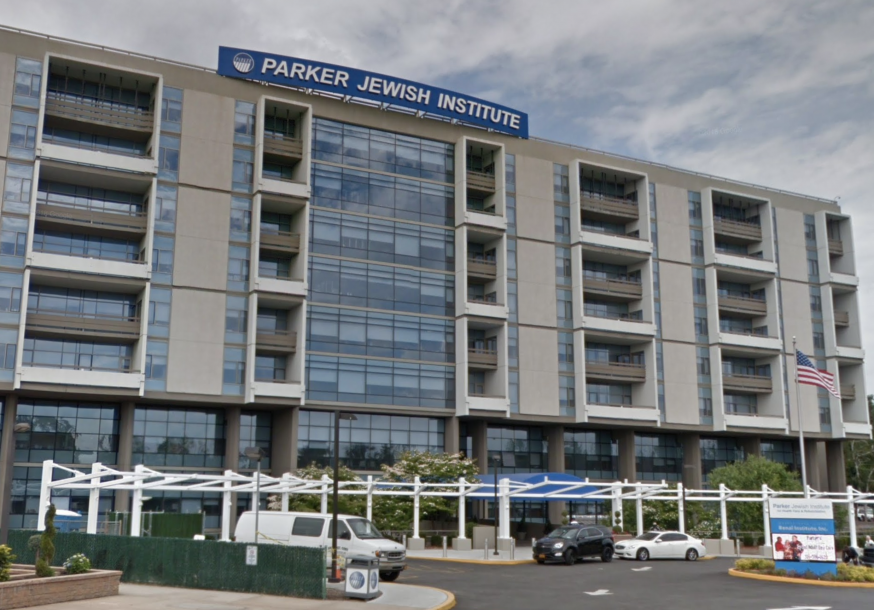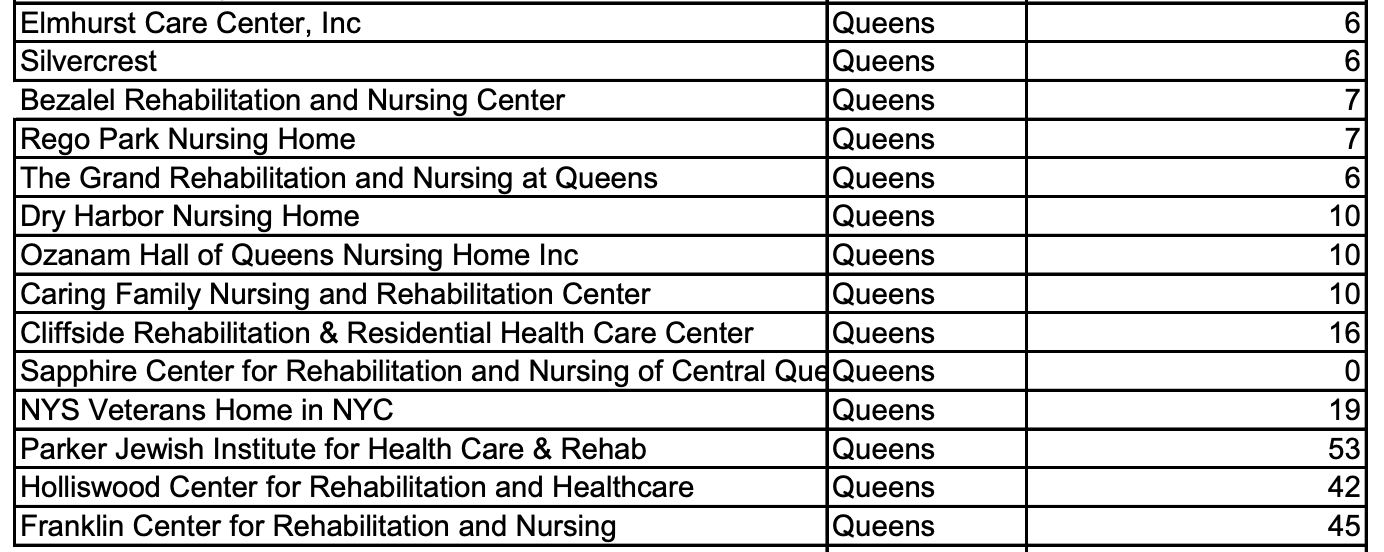
Parker Jewish Institute for Health Care & Rehab, located in New Hyde Park, has seen more than 50 of its residents die from coronavirus. (Google Maps)
April 28, 2020 By Allie Griffin
Council Member Robert Holden has called on Governor Andrew Cuomo to stop requiring nursing homes to house residents who have contracted the coronavirus.
Holden penned a letter to the governor yesterday after Cuomo reiterated Sunday that nursing homes must continue to care for their residents who are COVID-19 positive at their own facilities.
Cuomo has repeatedly said it’s the responsibility of nursing homes to provide their COVID-19 residents with safe and adequate care.
Nursing homes must isolate COVID-positive residents and have separate staff to care for them in order to prevent the virus from spreading. They cannot force residents to be treated elsewhere, or reject those returning from hospital who still carry the virus.
Holden said that’s a mistake. He said COVID-positive residents should be treated at hospitals until they are better, adding that many nursing homes don’t have the space for proper isolation.
He said that sick residents should be looked after elsewhere in order to stop the spread.
“The COVID-19 pandemic has taken a tragic toll on our nursing homes,” Holden said. “These facilities are filled with the people who are most likely to have severe cases of the virus.”
Statewide, more than 3,000 nursing home residents have died from COVID-19 as of Monday. In Queens, 667 residents have succumbed to the virus — more than any county in New York.
Three Queens facilities have had upwards of 40 deaths. Parker Jewish Institute for Health Care & Rehab, located in New Hyde Park, has seen 53 residents die from the virus.
Holden said that nursing home residents who have contracted the disease should be moved to hospitals — as hospitals have begun to see fewer COVID-19 patients compared to the height of the pandemic.
“Now that our hospitals have begun to stabilize, the state must lift this directive and ensure all nursing home patients are treated in hospitals where they can be properly isolated and treated until they are no longer contagious,” he said.
The Council Member said he fears for his own mother who is in assisted living.
“The governor has said that our mothers are not expendable during this crisis, and my 96-year-old mother in assisted living is no exception.”

COVID-19 deaths at Queens nursing homes as of 4/27 (NY Dept of Health)
2 Comments

If you love your parents and you are home due to the pandemic. Get them out of there if they are healthy enough. Do not wait for NYS/NYC to help you. They do not care.
These residents are the most at risk. The governor’s explanation of his position on this issue is unacceptable.